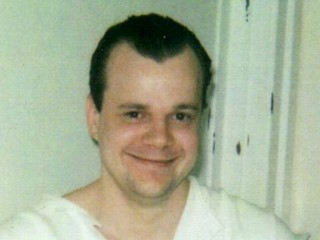ABC News has more updates about Jeff Wood's execution stay.
A federal court today temporarily stopped the execution of a man who was the getaway driver in a robbery that ended in murder, saying he should have the opportunity to argue he is too mentally ill to be executed.
Jeff Wood was scheduled to be executed in Texas Thursday night for his role in the 1996 death of Kris Keeran, a gas station convenience store clerk. Wood was waiting in the car while his former roommate robbed the store, and shot and killed Keeran.
The case has received national media attention because it would be one of the few executions under a legal doctrine that made Wood responsible for crimes committed by his accomplices that "should have been anticipated" -- even if he did not actually commit the crime.
But federal judge Orlando Garcia stayed the execution for another reason, finding that Texas violated Wood's constitutional rights by refusing to provide Wood with a lawyer to help him argue that he is too mentally incompetent to be executed.
"With all due respect, a system that requires an insane person to first make 'a substantial showing' of his own lack of mental capacity without the assistance of counsel or a mental health expert, in order to obtain such assistance is, by definition, an insane system," Garcia wrote.
Wood's attorneys said that Texas did not plan to appeal Garcia's ruling.
Garcia said there was some evidence that Wood did not understand the connection between his role in Keeran's death and the reason he was sentenced to death. He found that Wood should be given the chance to argue that he is mentally incompetent.Wood was initially found too mentally incompetent to stand trial. After a few months in a state hospital, Wood was found competent to go to trial, though he had not had any medical treatment during that time. He was convicted and sentenced to death in 1998.
An earlier mental health evaluation said Wood had delusional thought patterns and could not appreciate the consequences of his actions. His wife and father, in previous interviews with ABCNews.com, said Wood was eager to please and has trouble understanding information.
"He had a very strong need to be accepted," said his wife, Kristin. "He very easily went along with whoever wanted to accept him. That's why he ended up in bad company."
Texas death row inmate Jeff Wood and his wife, Kristin. Wood was scheduled to be executed Aug. 21, even though he did not kill anyone. A federal court issued a stay of execution today, which the state of Texas does not plan to appeal. (Courtesy of Kristin Wood)"He didn't know how to process information the way other people do," said Wood's father, Daniel. "He didn't know how to plan. He didn't know how to put things together. He loved to fish, but he couldn't plan for fresh water versus salt water. His solution was to bring everything."
A jury found Wood guilty after deliberating for about 90 minutes. During the penalty phase of the trial, during which defense lawyers try to persuade the jury to spare the defendant's life, Wood told his lawyers not to call any witnesses or cross-examine any prosecution witnesses.
His trial lawyer said he was morally opposed to Wood's decision, calling it "a gesture of suicide," court papers say.
Danny Reneau, Wood's former roommate, was convicted of shooting Keeran between the eyes during the robbery on Jan. 2, 1996. Reneau was executed in 2002.
Wood, who told police Keeran was a friend, later admitted that he came into the store after hearing the gunshot that killed Keeran, court opinions in the case say. Wood then helped Reneau take the store VCR and surveillance tapes -- but only after Reneau forced him to do so at gunpoint, Wood claimed.
Wood was convicted under a Texas law known as the law of parties.Though most states have similar laws, often called felony murder statutes, they are rarely used to sentence criminals to death. There have been at least seven such executions, excluding murder-for-hire cases, since the death penalty was reinstated in 1976, according to the Death Penalty Information Center.
The U.S. Supreme Court has ruled that a person may be executed for a murder he or she did not commit or intend to commit if they were a "major participant" in the crime or acted with "reckless indifference to the value of human life."
The Texas Board of Parole and Pardons on Tuesday denied Wood's clemency petition.

1 comment:
I sometimes write about the death penalty on my blog. Most of the commenters are rabid pro death penalty folks. Why is that?
http://mikeb302000.blogspot.com/
Post a Comment